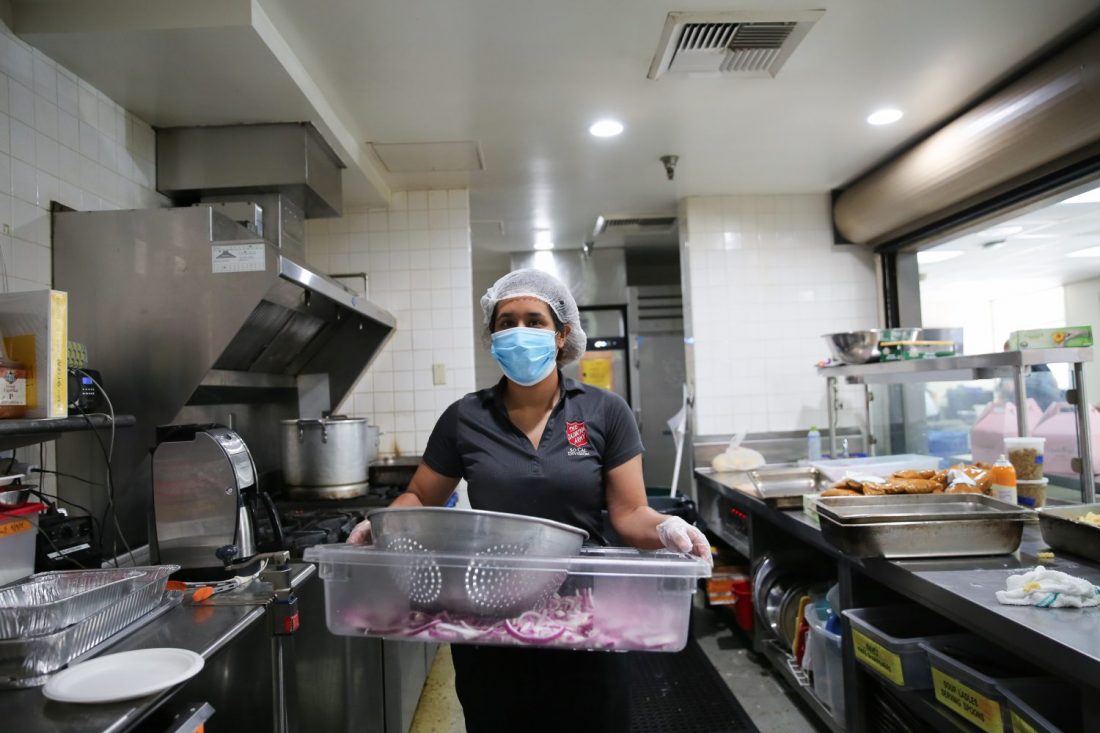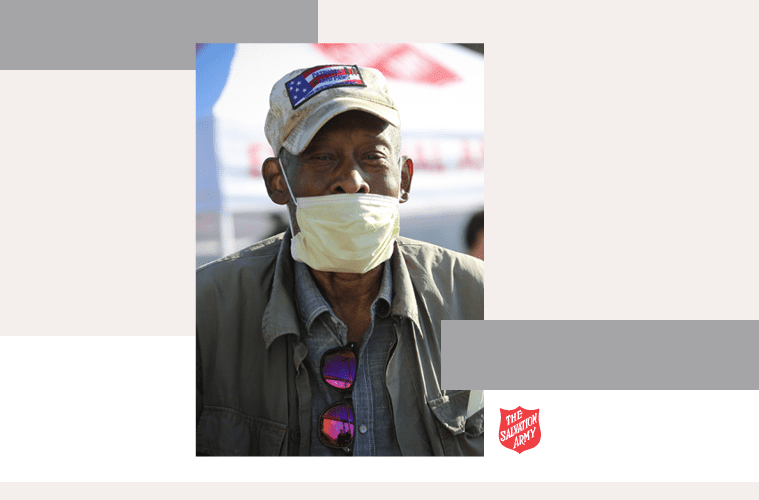The Salvation Army responds to the growing problem of food insecurity.
By Laura Poff –
While families across the United States gather around the table for turkey, stuffing and yams this Thanksgiving, many others will line up in the early morning hours outside of the doors of their local Salvation Army, giving thanks for one less meal to worry about.
Last year, in Portland, Ore., 500 people gathered on the sidewalks outside of the Portland Harbor Light Center to wait for hours in the rain while volunteers prepared a nutritious meal.
“While the possibilities of families starving is very low in America, there are large gaps in the availability of healthy food,” said Captain Dana Libb.y, Western territorial social services secretary.
The concern is food insecurity—a lack of access to affordable, nutritious foods. A 2013 Harvard study found that eating a healthy diet rich in fruit, vegetables, fish and nuts, costs on average an additional $1.50 per person per day. For a family of five, that equals an extra $225 a month.
In the U.S. today, 48 million people live in food insecure households, including 7.9 million children. Many of these families qualify for federal food assistance programs such as the Supplemental Nutrition Assistance Program (SNAP) or the Special Supplemental Nutrition Program for Women, Infants, and Children (WIC)—but 27 percent do not.
For these individuals, charitable organizations can be the only source of refuge when the cupboards are bare.
The Salvation Army serves 60 million meals across the country throughout the year through food pantries, mobile meals, soup kitchens, community gardens and other services, all tailored to the specific needs of each community.
“By joining with other food banks, produce wholesalers, canning companies, and so on, The Salvation Army is able to help provide necessary and specific foods to fill this need,” Libby said.
The Human Needs Index, recently released by The Salvation Army in partnership with Indiana University, shows that need increased more dramatically in the Western Territory than any other, with a sharp and steady increase since the recession in 2008. The California drought is a major contributor, as it has put people out of work and out of their homes.
Oregon is the only state in the West with above average rates of food insecurity, according to a recent Department of Agriculture study. Major Nancy Dihle, Cascade divisional secretary for program and Portland Metro coordinator, attributes this to high rates of unemployment and homelessness. Unemployment in Portland is 6.4 percent, the lowest it’s been since before the 2008 recession, and the Department of Housing and Urban Development’s latest figures estimate that 4,000 Portlandians sleep on the streets.
Dihle said these factors have led to an increased demand for services over the past few years. Across all regions, this demand peaks during the holiday season when a warm, healthy meal served with dignity can make a huge impact on the one receiving it. This impact, however, is temporary. The hungry will be hungry again.
“At another level, local and state advocacy for specific measures can become an important aspect of bringing change,” Libby said.
The Salvation Army has long been involved in advocacy and lobbying at the national level, with committees often strategizing at National Headquarters (NHQ). Most recently, NHQ supported the Summer Meals Act of 2015, which would strengthen, protect and expand access to the Summer Nutrition Programs that reduce childhood hunger and obesity, and petitioned Congress to lift the lifetime bans on SNAP and Temporary Assistance for Needy Families (TANF) benefits for those convicted of federal drug offenses. NHQ also endorsed the Stop Child Summer Hunger Act of 2015, which would provide low-income families with children with an EBT card for the summer to purchase food.
By using influence and experience to support measures that will benefit those in need, The Salvation Army provides more than meals. It provides hope that one day soon, no one will go to bed hungry and no one will have to line up outside of a shelter for a healthy meal.












